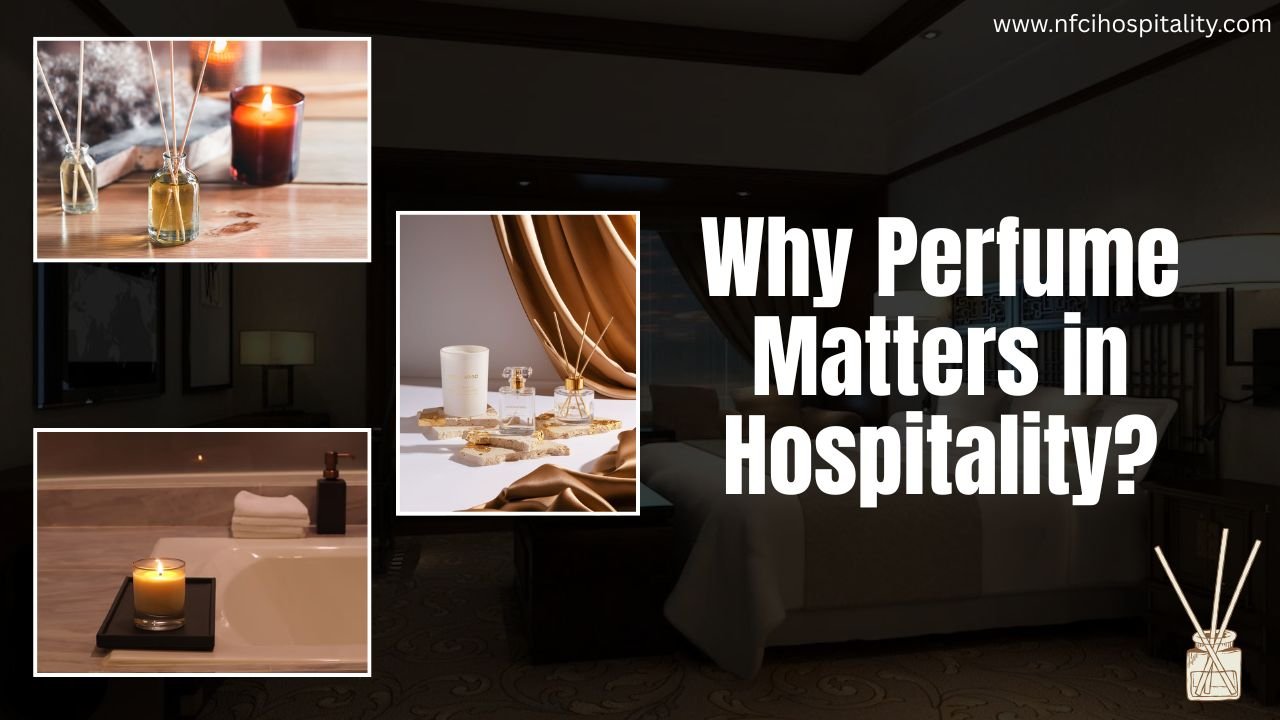
Why Perfume Matters in Hospitality: The Hidden Power Behind Guest Experience
Note: In this guide, the word perfume refers to ambient fragrance used in hotel spaces, not personal perfumes worn by guests.
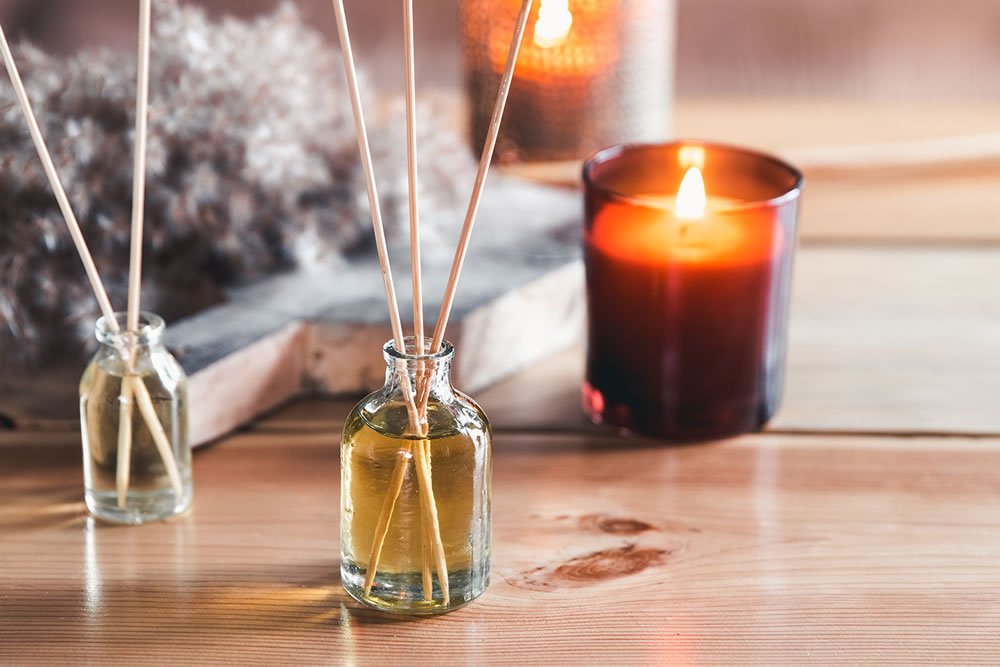
The moment when you enter into a new hotel, workspace, or someone’s home, something invisible but impactful reaches you first. Before the décor, or lighting, what attracts a guest the most? The answer is scent – that greets you first before even the staff. Guests expect hotels to smell good the moment they walk in. Every place has a scent – especially hotels. This first impact matters as it shapes the experience of the rest of your visit.
The scent plays a vital role in hotel industry and serves as the silent storyteller that create warmth, relaxation, and nostalgia. Perfume in hotels is a strategy, psychology, and a brand handshake that happens in the limbic system, before guests can even name it.
In this guide, we will answer why perfume matters in hotel management sector, how hotels design and deploy scents, and what hospitality students must know to use fragrance professionally and ethically.
The Science: Why Smell has Power?
When we breathe in a scented place, tiny odor particles travel through the nose and activate the olfactory nerves. The nerves have a direct link to the brain’s limbic system where our feelings and memories live. This part controls emotions & feelings, store memories, and impacts the mood and behaviour of a person. That’s the reason one smell can change everything in a second.
This connection is instant. The brain does not analyze the smell first. And that’s why:
- A fragrance can suddenly remind of your old home or hometown.
- The smell of tea can make your feel comforted.
- A bad odor can make you feel discomfort and even spoils your mood.
What Research Says About this?
Studies in consumer behaviour have shown that pleasant scents can:
- Make people feel more comfortable in a space.
- Improve of how they judge or perception about the environment like cleanliness, luxury, or comfort.
- Increase the time of their stay.
- Attracts guests, boost satisfaction and return visits of them.
- Even make products seem higher in quality.
In short, good smell = good experience, even if people don’t consciously notice it.
Why Perfume Matters for Hotels?
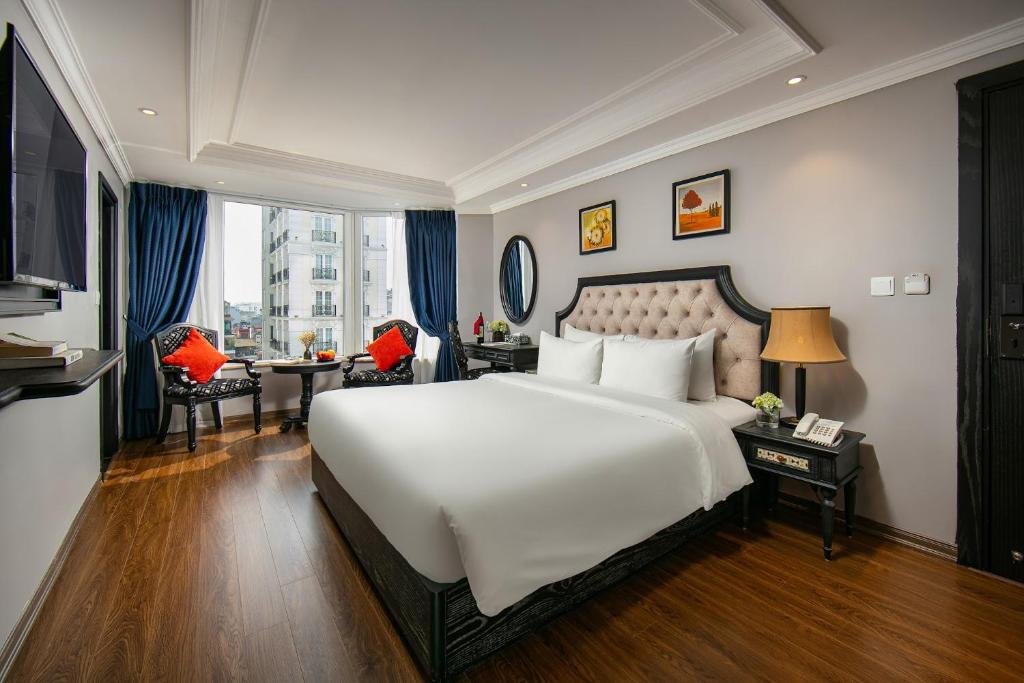
In hospitality management, perfume is about creating emotional memory, comfort, and perception.
When a guest enters a hotel and breathes in a soothing, signature scent – their mood shifts instantly, the brain stores this as a positive emotional memory and when they smell it again, they remember the hotel. A good scent makes guests visits again.
This is how a scent becomes part of the brand identity just like a logo, tagline, music, or interior design. That’s the real power of perfume in hospitality.
Storytelling with Scent: The “Signature Smell”
Today, many top hotels create their own unique fragrance just like they have a brand logo or theme. This special scent becomes part of their brand identity. When guests smell it, they instantly think of that hotel.
There are many luxury brands like Edition (with Le Labo), Shangri-La, and Ritz-Carlton use signature scents not just in the lobby, but in spas, corridors, and stores.
This isn’t just for show. Using the same scent across different hotel spaces helps guests remember the brand more strongly. So when they think about booking again or recommending a hotel to their friend or loved one—the memory of that fragrance brings the hotel back to mind.
In simple words: A signature scent makes a hotel recognizable, memorable, and emotionally connected to its guests.
Use of Perfume in Hotel Industry: Why It Matters and Where It Is Used?
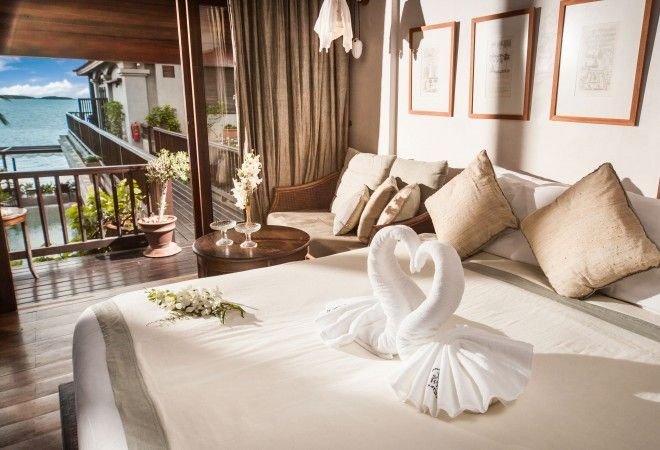
- Lobby / Arrival: create a “warm welcome” Use subtle citrus, white tea, or light woods to convey cleanliness and calm.
- Spa & Wellness: use aromatherapeutic notes like lavender, eucalyptus to reduce stress.
- Guest Rooms: keep fragrances extremely light or let rooms remain neutral.
- Restaurants & Kitchens: avoid masking food aromas; dining areas often remain unscented so culinary scents dominate.
- Retail & Gift Shops: stronger retail-friendly scents can encourage dwell time and purchases.
Does Scent Change Behavior and Revenue?
Multiple studies and industry data reveals measurable effects, as given below:
- Pleasant ambient scents improve customers’ evaluations of the environment, product perception and intent to revisit.
- Industry surveys (by scent-marketing firms) report large percentages of guests saying pleasant smells positively impacted their experience and relaxation levels. These findings support the idea that scenting can boast guest satisfaction scores and dwell time.
Risks and Ethics: When Perfume Backfires?
Scent is powerful and plays an important role in hotel industry but with power comes risk:
- Over-scenting can cause headaches, nausea, and allergic reactions. Scientific literature records negative effects when scents are too strong or mismatched to context.
- Guest sensitivity: some guests prefer unscented rooms for health or cultural reasons. Hotels must offer fragrance-free options and clear guest communication.
- Inconsistency can damage brand trust — a lobby that smells different each visit undermines the “signature” effect.
How Hotels Can Prevent These Scent Risks?
- Always use low dosages, zone-based scenting, guest opt-outs, and robust complaint tracking.
- Never use perfume to hide poor hygiene. Cleaning always comes first, scent only enhances.
How Signature Perfumes Are Created?
Creating a hotel scent is a deliberate process:
- Brand brief: define the mood, audience, and narrative the scent should carry.
- Perfumers or agencies: hotels work with experienced perfumers or olfactory-branding agencies to blend raw materials into accords that reflect the brief. This can take weeks or months of iterations and testing.
- Pilot testing: scent tests in real spaces (with guest/staff feedback) to tune intensity and placement.
- Scale & control: choose diffusion technology (HVAC integration, nebulizers, or localized diffusers) and create SOPs for maintenance and refill cycles.
Practical Checklist for Hoteliers (do this before scenting)
- Define brand emotion you want the scent to convey. Emotions like calm, energize, and luxe.
- Choose a professional perfumer or reputable olfactory agency.
- Map scent zones and decide where not to scent (e.g., dining).
- Pilot with small focus groups and collect quantitative feedback.
- Use technology that allows intensity control and scheduling.
- Train housekeeping and front-desk teams on guest opt-outs and product handling.
- Monitor reviews and guest feedback and adjust within 30–90 days.
What Hospitality Students Must Learn?
If you’re training for a career in hotel industry, scent literacy is now a professional skill and Understanding perfume etiquette is now part of personality development.
Key learnings:
- Understand scent psychology
- Follow perfume etiquette
- Understand technology basics
- Practice guest-first thinking
How Technology Is Shaping the Future of Fragrance in Hotels?
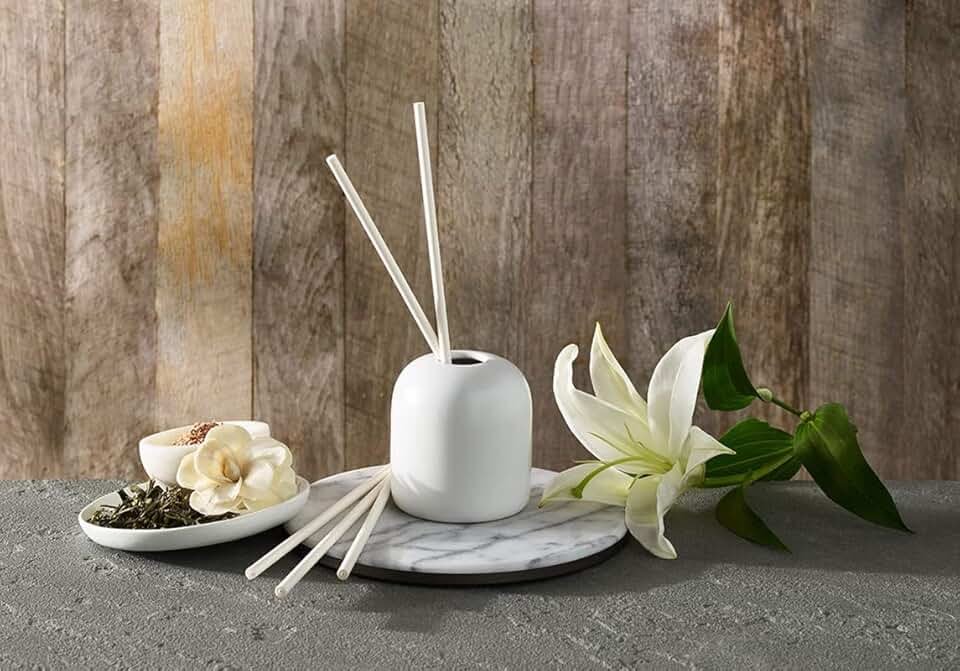
Expect these directions to grow:
- Personalized in-room scent options: letting guests choose room fragrances via app or in-room controls.
- Smart scent scheduling: AI-driven scent intensity changes based on occupancy, time of day, or guest profiles.
- Scented merchandising: more hotels packaging their signature scents as candles, sprays, and amenities for sale.
- Health-forward scenting: hypoallergenic, natural-ingredient accords for eco-conscious guests.
Final Thoughts
Perfume in hospitality should be treated as a most important decision. It must be strategic, tested, and guest-centred. When done well, scent becomes the silent ambassador of a stay as it calms, comforts, and connects. When done poorly, it offends or make bad impact on the guests.
For hoteliers and students alike, the lesson is simple: respect scent’s power, learn the science behind the power of perfume, test with empathy, and use fragrance to tell your brand’s best story.
Want to learn the skills that make you stand out in hotels—from grooming tips to guest experience? Join NFCI’s hospitality management courses and get industry-ready with practical training and personality development. With 35+ years of excellence, NFCI (National Finishing and Cookery Institute) offers government-approved programs that prepare you for a successful career from day one.
Ready to shine in the hospitality industry?
Admissions are open.
Apply today and start your journey!
Tag:5-star hotel fragrance, fragrance etiquette, Hospitality Management, hygiene in hospitality, importance of perfume in hospitality, perfume in hotel industry, personality development in hospitality, use of perfume in hotel industry, what hospitality students must learn, why perfume matters for hotels





